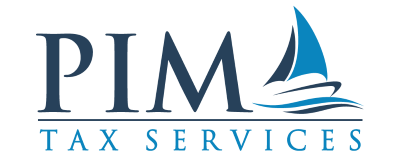I have prepared tax returns for more than a few first time landlords – people who are in their first year of collecting rents for a house or condo (or co-op). Often these folks had never intended to be landlords. They originally purchased the property to live in and then later determined it was in their financial interests to put it on the rental market rather than sell it. That decision was never reached lightly, but it was frequently reached without understanding the tax implications of residential real estate rentals. Hopefully this post will shed some light on that.
The first thing to keep in mind is that once you put your property up for rent it is a business, and you are a business owner. All of the rents you collect are revenue, and every nickel you spend on that property is an expense. Your revenue and expenses for your property are reported to the IRS on Schedule E, and the difference between the two passes through to Form 1040 of your individual tax return as income.
Rents – Expenses = Rental Income
You will pay income taxes on that rental income, therefore, it is important to keep track of all of the expenses for your property so you pay taxes on the correct amount of rental income. The most common mistake I see first time landlords make is not tracking their expenses. They sit across from me at tax time, eyes rolled up toward the ceiling, trying to recall if, what, and how much they had spent on maintenance, repairs, etc. They were not aware they needed to keep track of expenses in order to reduce their tax bill.
Deductible rental property expenses include:
- Advertising
- Auto and travel
- Cleaning and maintenance
- Commissions
- Insurance
- Legal and professional fees (such as tax preparation)
- Management fees
- Mortgage interest
- Repairs
- Supplies
- Taxes
- Utilities
- Depreciation
If you’re renting out a real estate property be sure you’re keeping track of those expenses throughout the year.
Residential Real Estate Depreciation
Depreciation is a difficult concept for many first time landlords. It seems counter-intuitive. We want our properties to appreciate (go up in value), not depreciate (go down in value). It’s important to understand, though, that depreciation for tax purposes isn’t related to the actual change in value of your property. Depreciation for tax purposes is about claiming a current tax benefit by writing down your basis in the building. (For most people the basis is the amount they paid for the building – land is not depreciable for tax purposes.)
Taxpayers are not required to take the tax benefit of depreciation, but THEY SHOULD. Here’s why – whether you take the depreciation or not, the IRS is going to treat you like you did. When you sell the property you will have to pay tax on the amount of depreciation that is recaptured in the sale price – even if you never took the depreciation tax benefits in the first place. It is as if the IRS extends a bowl of money to you and says, “You can take some if you want, but even if you don’t we are going to tax you as if you took it.” In that situation the only rational response is to take the money.
Because the land does not depreciate the taxpayer must know the value of the house without the land. This can normally be found in local property tax records. In Virginia property values are public records, and can be found online. I have found property values online for other states as well, but I have not checked all 50 of them. (Virginia Beach Property Values website). For recently purchased properties we can also find the needed information in the appraisal documents.
If you made significant improvements to the property (i.e. new roof, new HVAC, remodeled kitchen…) before putting it on the rental market it changes your basis, so we would need to know those costs as well to get to the right number for your basis in the property. If you make significant improvements after you put the house in the rental market the improvement is depreciated separately and the depreciation on the house and the depreciation on the improvement are added together for schedule E.
Knowing your expenses and the value of the building you are renting (so we can figure your basis and depreciation) is a big help to your tax preparer. It’s a fairly complex subject, though, so expect to spend some extra time with your tax professional the first time you file as a landlord. It’s confusing to most people in the beginning, and I am happy to take the extra time to help you understand the tax implications of your rental property.


